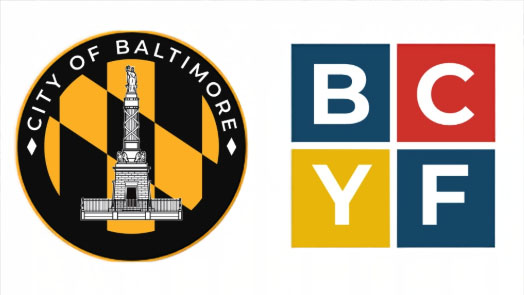Lifestyle
Baltimore Youth Fund Faces Scrutiny Over Financial Transparency

Concerns about financial transparency have emerged regarding the Baltimore Children and Youth Fund (BCYF), a nonprofit funded almost entirely by taxpayer dollars. An investigation by Spotlight on Maryland has highlighted significant gaps in accountability, particularly in the organization’s reluctance to address questions about its financial practices. The BCYF receives approximately $16 million from Baltimore City annually, yet it has consistently declined to provide clarity on its spending and oversight, raising issues about public trust.
The investigation reveals that BCYF, which derives 99% of its funding from taxpayers, has not engaged with repeated inquiries about its financial decisions. Experts suggest that this lack of transparency undermines the organization’s mission to support local youth. BCYF has not responded to questions regarding its spending practices, oversight mechanisms, or the absence of documentation for significant financial transactions.
The findings indicate that BCYF allocated roughly $300,000 for out-of-state trips for staff and partners, which included expenses for meals and activities. A notable expense was a yoga session costing more than $3,000. BCYF defends these expenditures as part of its initiatives to promote capacity-building and racial equity among nonprofit leaders.
In fiscal year 2026, the BCYF transferred $7 million to the Mayor’s Office of Employment Development for youth initiatives such as YouthWorks, which provides summer jobs for teenagers. However, when requested for documentation of this transfer, BCYF stated that none exists. This lack of records raises further questions about how taxpayer funds are utilized.
Spotlight on Maryland has sought answers from BCYF President Alysia Lee and Board President Larry Simmons regarding the organization’s financial practices. Despite multiple requests, they have not agreed to an interview or provided any explanations. According to David Williams, president of the Taxpayers Protection Alliance, the public deserves transparency about how their money is spent. He emphasized that the Youth Fund must clarify its financial responsibilities to restore trust among Baltimore residents.
A convoluted financial structure complicates oversight of BCYF’s operations. Baltimore residents contribute taxes that allocate approximately 3 cents per $100 of assessed property value to BCYF. The organization then redistributes these funds to various grantees, many of which act as fiscal sponsors. For instance, Fusion Partnerships, a fiscal sponsor that received over $3 million from BCYF since 2020, announced it would cease its sponsorship services. When asked how the funds helped Baltimore youth, BCYF did not respond.
Additionally, concerns persist regarding how BCYF grantees allocate taxpayer dollars. Approximately 60% of BCYF’s funding is directed toward grants for local organizations. Still, the specific expenditures of these organizations remain unclear, particularly when funds are bundled under fiscal sponsors’ filings. Spotlight on Maryland has again requested information from BCYF on the overhead costs incurred by its grantees, but the organization has yet to provide a response.
In response to these accountability issues, members of the Baltimore City Council have introduced a bill aimed at enhancing transparency and requiring performance audits for BCYF. The proposal, co-sponsored by Council members Mark Parker and John Bullock, seeks to impose new rules that would limit grants to groups affiliated with BCYF staff or board members. This bill has garnered support from several council members but faces opposition from Mayor Brandon Scott and BCYF.
The introduction of this bill comes as the Baltimore City Inspector General has launched an investigation into BCYF’s operations. With the Council needing ten votes to override a potential mayoral veto, the outcome remains uncertain as discussions continue among council members.
The lack of response from BCYF to questions regarding its financial management raises significant concerns about accountability and public trust. As the investigation unfolds, Baltimore residents and city officials alike are left seeking clarity on how taxpayer funds are being managed and utilized for the benefit of the city’s youth.
-

 Science1 week ago
Science1 week agoResearchers Challenge 200-Year-Old Physics Principle with Atomic Engines
-

 Politics1 week ago
Politics1 week agoNHP Foundation Secures Land for 158 Affordable Apartments in Denver
-

 Health1 week ago
Health1 week agoNeuroscientist Advocates for Flag Football Until Age 14
-

 Health1 week ago
Health1 week agoFDA Launches Fast-Track Review for Nine Innovative Therapies
-

 Lifestyle1 week ago
Lifestyle1 week agoLongtime Friends Face Heartbreak After Loss and Isolation
-

 Business1 week ago
Business1 week agoMaine Housing Inventory Surges to Post-Pandemic High
-

 Top Stories1 week ago
Top Stories1 week agoUnforgettable Moments: The Best Victoria’s Secret Performances
-

 Politics1 week ago
Politics1 week agoIsraeli Air Strikes in Lebanon Kill One, Wound Seven Amid Tensions
-

 Politics1 week ago
Politics1 week agoMassachusetts Lawmakers Resist Audit After Voter Mandate
-

 World1 week ago
World1 week agoTroops to Enjoy Buffalo Chicken, Thai Curry in 2026 MREs
-

 World1 week ago
World1 week agoGlobal Military Spending: Air Forces Ranked by Budget and Capability
-

 Lifestyle1 week ago
Lifestyle1 week agoJump for a Cause: San Clemente Pier Hosts Fundraiser Event









